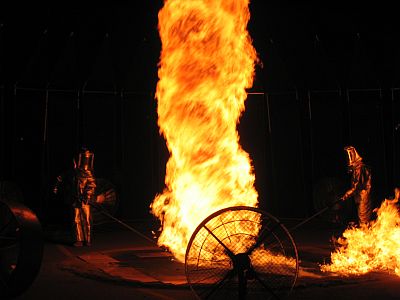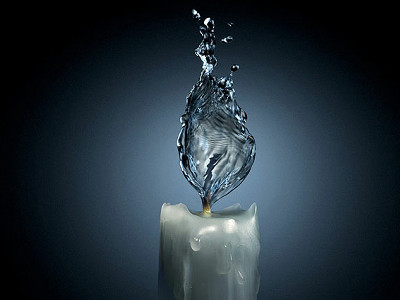Experts point out that it is a mistake to say that 'fire' is weak against 'water', what mechanism does water use to extinguish fire?

Many people have the idea that if there is a fire, they should pour water on it, or that they have the impression from games or anime that ``fire is weak against water.'' However, experts in fire combustion and behavior point out that the image that fire is weak against water is wrong.
How does water put out fire? | Live Science

Sarah McAllister, a researcher at the U.S. Forest Service's Missoula Fire Science Laboratory in Montana, in the northwestern United States, explains that water is a very good heat sink. It acts on fire through endothermy.'

In order for a fire to continue burning, it requires three things: fuel, oxygen, and a heat source. According to Michael Gollner, a combustion expert at the University of California, Berkeley, water primarily affects fuel. When the fuel is burning, whether it's wood, grass, or a building, the heat of the fire evaporates the substances in the fuel and turns it into gas, which keeps the fire burning. If water with a large heat capacity is poured over it, the water will combine with the fuel and the energy required for evaporation will increase. As a result, the fire can no longer devote energy to evaporating the fuel and can't keep burning.

Cooling the fuel also has the effect of increasing the temperature required for the fire to evaporate the fuel. According to Gollner, this is what sprinklers are designed to do: keep the 'future fuel' moist and cool, preventing it from spreading. There is also a fire extinguishing system that ``sprays water in the form of a mist to cover the room with water droplets, and the water droplets are superheated and turn into water vapor, replacing oxygen with water vapor and quelling the flames.''
Although water does not have a direct effect on fires, it can be said to be an effective extinguishing agent. However, this does not mean that fire is weak against water, so in cases where the firepower is too strong or in large-scale fires such as forest fires, water can only slow the spread of the fire and buy time until the fire department can arrive. . 'Physically removing fuel and covering it with earth is the best way to stop fire activity,' Gollner said. 'However, when flames are more than 15 meters high, it is virtually impossible to do so.' 'It's about the method,' he says of the difficulty of extinguishing the fire.
Related Posts:
in Science, Posted by log1e_dh







